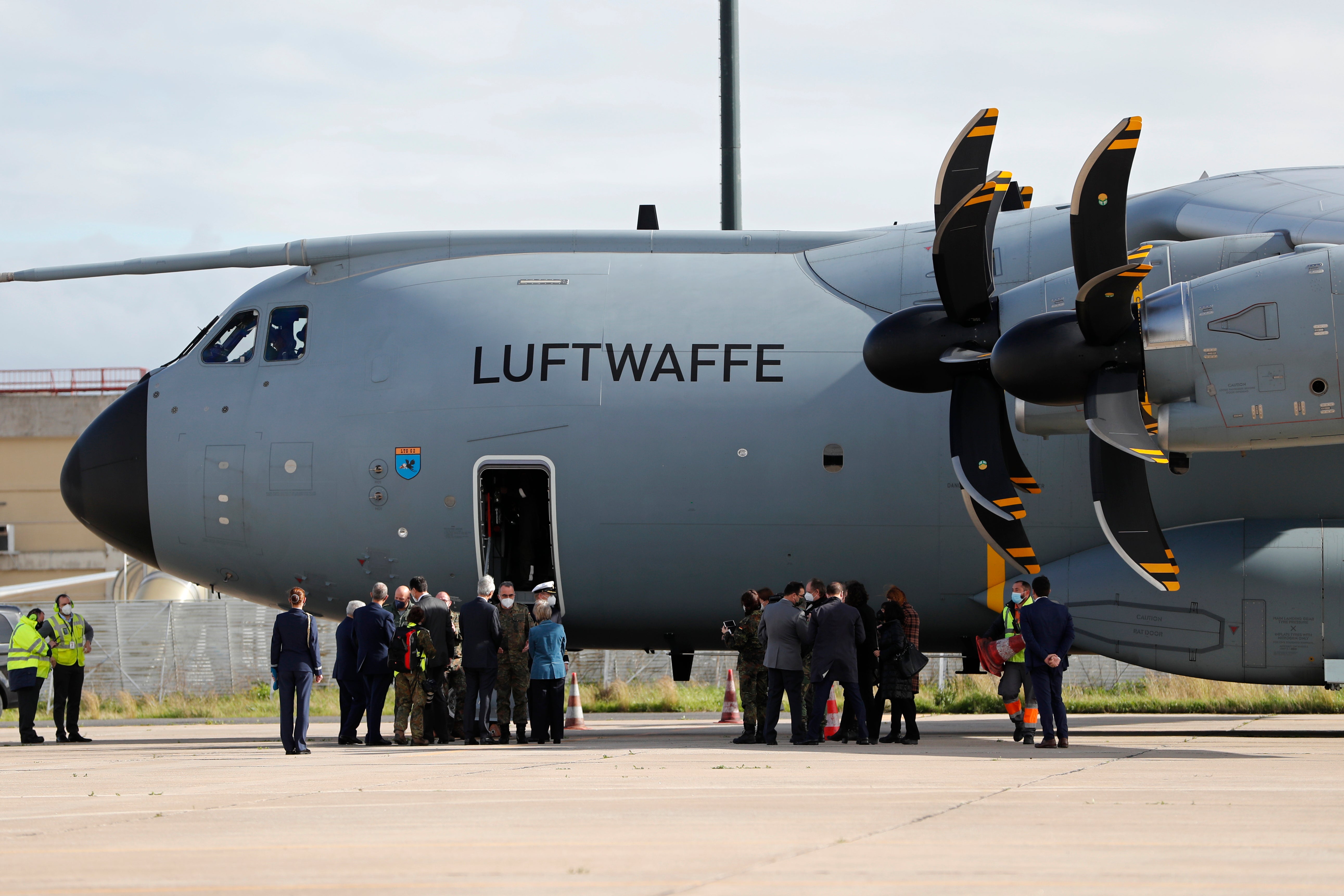German army medics arrive in Portugal to help fight pandemic
A German military medical team has arrived in Lisbon to help Portugal cope with a pandemic surge that has made it the world’s worst-hit country by size of population

Your support helps us to tell the story
From reproductive rights to climate change to Big Tech, The Independent is on the ground when the story is developing. Whether it's investigating the financials of Elon Musk's pro-Trump PAC or producing our latest documentary, 'The A Word', which shines a light on the American women fighting for reproductive rights, we know how important it is to parse out the facts from the messaging.
At such a critical moment in US history, we need reporters on the ground. Your donation allows us to keep sending journalists to speak to both sides of the story.
The Independent is trusted by Americans across the entire political spectrum. And unlike many other quality news outlets, we choose not to lock Americans out of our reporting and analysis with paywalls. We believe quality journalism should be available to everyone, paid for by those who can afford it.
Your support makes all the difference.A German army medical team flew into Lisbon on Wednesday to help Portugal cope with a pandemic surge that has made it the world’s worst-hit country by size of population.
The eight doctors and 18 nurses arrived at the Figo Maduro military airport in the Portuguese capital aboard a Luftwaffe transport plane.
Portuguese Health Minister Marta Temido said they would be deployed at an intensive care unit at Lisbon’s Hospital da Luz with eight beds. The unit had not been used so far because of a lack of medical staff.
Temido said the deployment addresses an acute problem in Portugal: a shortage of human resources in the public health system, which has been stretched to the limit after a January spike fueled by a fast-spreading COVID-19 variant first identified in England.
“It might not seem like much,” Temido said of the eight ICU beds, “but let me tell you it’s a lot, especially for a health system that’s under heavy pressure and where the coming days will be critical.”
Almost 7,000 people are currently in hospital with the virus, with almost 900 in intensive care. Hospital wards and ICUs were on average at 94% of capacity at the start of this week, according to Portuguese health officials.
Portuguese authorities have recently spent frantic weeks rushing to turn every available space into makeshift areas for COVID-19 beds.
Though the growth of new cases has slowed in recent days, hospitals are still bracing for weeks of many new admissions because of a time-lag between diagnosis and possible need for hospitalization.
German ambassador Martin Ney said the unit being deployed would rotate out every three weeks. “This is a long-term effort,” he said.
European Union countries helping each other in times of crisis is common. Germany has also provided help during the pandemic to Italy and France, among others.
The medics are being given temporary credentials to work in Portugal, which provides liability insurance for any claims against them. They are exempt from the usual requirement for foreign doctors of being able to speak Portuguese.
The arrival of foreign help coincided with the launch of Stage Two of Portugal’s national vaccination plan.
Health services began Wednesday the process of inoculating some 900,000 people above 80 years of age, or above 50 with underlying health problems, over the next two months.
Prime Minister António Costa said that in the first phase during January more than 400,000 people were vaccinated, mainly residents and staff of elderly care homes, frontline health workers and security forces.
“We are now making a big leap forward,” Costa said of the second phase.
He said the challenge of the third phase of the plan, when the rest of the population is due to be inoculated, depends on how quickly manufacturers can provide their vaccines.
___
Follow AP coverage of the coronavirus pandemic at:
https://apnews.com/hub/coronavirus-pandemic
https://apnews.com/hub/coronavirus-vaccine
https://apnews.com/UnderstandingtheOutbreak